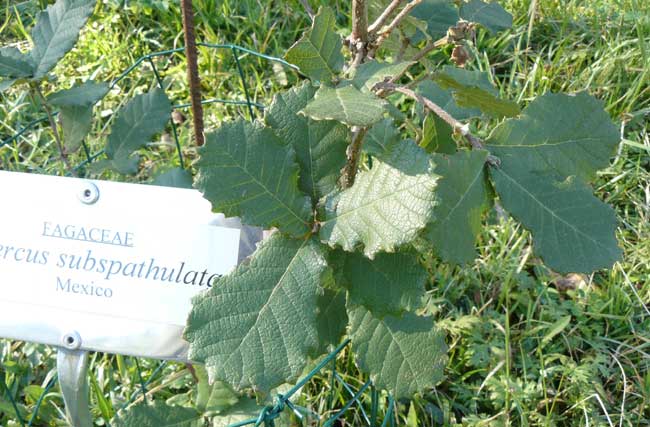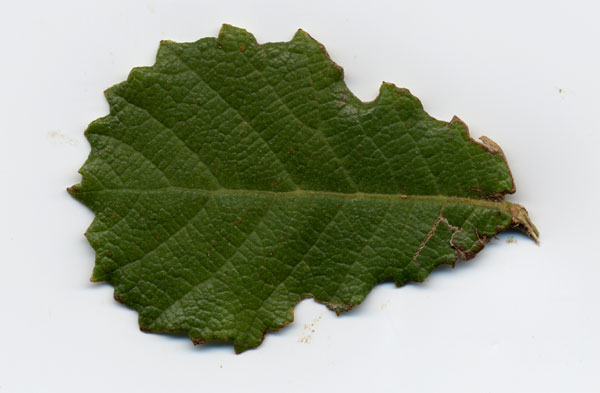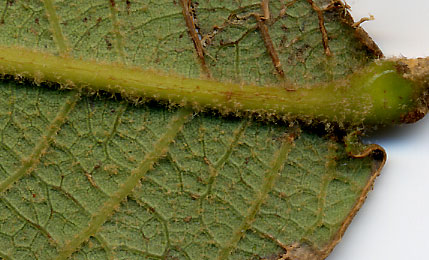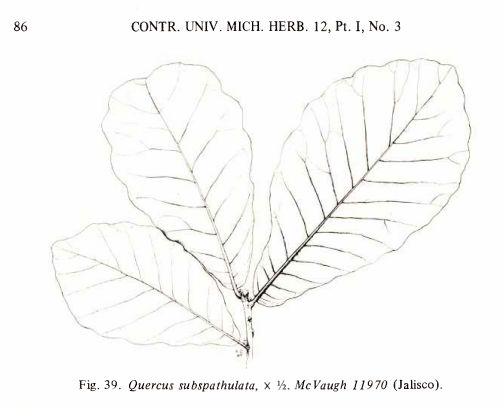| Quercus subspathulata | |
| Author |
Trel. 1924 Mem. Natl. Acad. Sci. 20: 56 Diagnosis here |
| Synonyms | pallidifolia
C.H.Muller 1972 |
| Local names | encino borrego; encino mixcahue; |
| Range | Mexico (Chihuahua, Sonora, Michoacan, Jalisco) ; 900-1600 m ; |
| Growth habit | 4-8
m tall; trunk 15-45 cm in diameter; |
| Leaves | 8-11
x 3-5.5 cm; deciduous, oboval to elliptic, convex, spatulate; leathery;
apex obtuse to rounded, sometimes retuse; base narrowly rounded to heart-shaped,
sometimes auricled; margin thick, slightly revolute, wavy, toothed (3-8
pairs of obtuse teeth with short mucro); mature leaves are both sides
nearly glabrous; lustrous pale green above, with few stellate trichomes
near base and on midrib; waxy-glaucous beneath with at first abundant
glandular hairs and some shortly stipitate stellate trichomes along large
veins, then glabrous; 8-14 vein pairs, straight, remotely impressed adaxially,
prominent beneath; papillar epidermis; stout, pinkish, glabrescent petiole
3-7 mm long; |
| Flowers | |
| Fruits | acorn
0.8-1,5 cm; singly or to 3 together on a peduncle less than 1.5 cm long;
enclosed 1/3 or more by tomentose cup; maturing in 1 year; |
|
Bark, twigs and |
dark
bark, fissured into plates; twigs 2 mm thick, glabrescent, grey, pruinose,
with pale yellow lenticels; bud nearly globose 2 mm long; |
| Hardiness zone, habitat |
not hardy (zone 8-9); all types of soils; |
| Miscellaneous |
--
Sub-genus Quercus, Section Quercus, Series Leucomexicanae; |
| Subspecies and varieties |
|
| Pictures |
More pictures HERE
|




